Walking for a Living
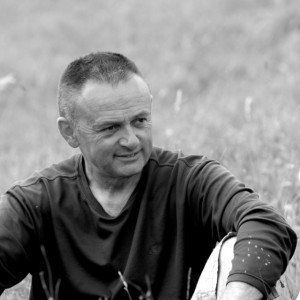
LIMERICK, DUBLIN and BOLOGNA
I was born in Limerick city a few decades ago. I am quite proud of my birth place. My full name is Anthony Gerard Martin John Kirby. My father was extravagant when it came to naming me. His own name was Alf and I remember him being described as a “charismatic insurance salesman” in a book on the life of actor Richard Harris. My father passed away in 1977. My mother did likewise two and a half years ago at the age of 99 .
I studied French and English literature in University College Dublin in the late 1970s. I graduated without distinction but the education did give me an enduring love for words and languages. Whilst in college I happened to sit a civil service exam. I remember meeting the comic genius, the late Dermot Morgan, in the exam hall that day. He was a good friend of my cousin. I got the call to work for the state after I left college. I became a public servant. Morgan didn’t. Sometime later he became Father Ted in the eponymous and wildly successful TV comedy series.
Thankfully my public service did not stretch to licking envelopes or asking people their mothers’ maiden name . However, the job did not enthral me either. I finally invoked an escape clause and made good for Italy. A five year long sabbatical. I taught English as a foreign language in the medieval city of Bologna. I also spent one sublime summer in the city of Matera – a world UNESCO heritage site. Five years is the career break limit so I opted for the Irish public service again when the sabbatical expired. I returned to Dublin in 1997. I still miss Italia .
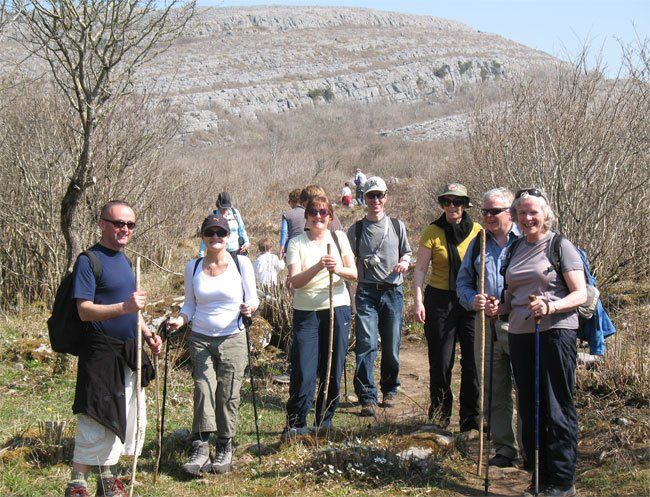
DUBLIN AGAIN
On my return to Ireland, Italian friends would visit on occasion. My visitors were keen to learn of Irish history and heritage and I was glad to guide them around town and share information with them. Therefrom came the idea of guided walking tours of Dublin city in Italiano . My life as a walking tourism operator had begun. Extremely modest beginnings – I took occasional half days from the government job in high season to run the tiny enterprise. However, my love for the life as a cicerone was born. Around 2000, I had the luckiest encounter of my life - I met Eimer. After a while she proposed a new life in the west of Ireland. I was to take my second and last career break from the public service.
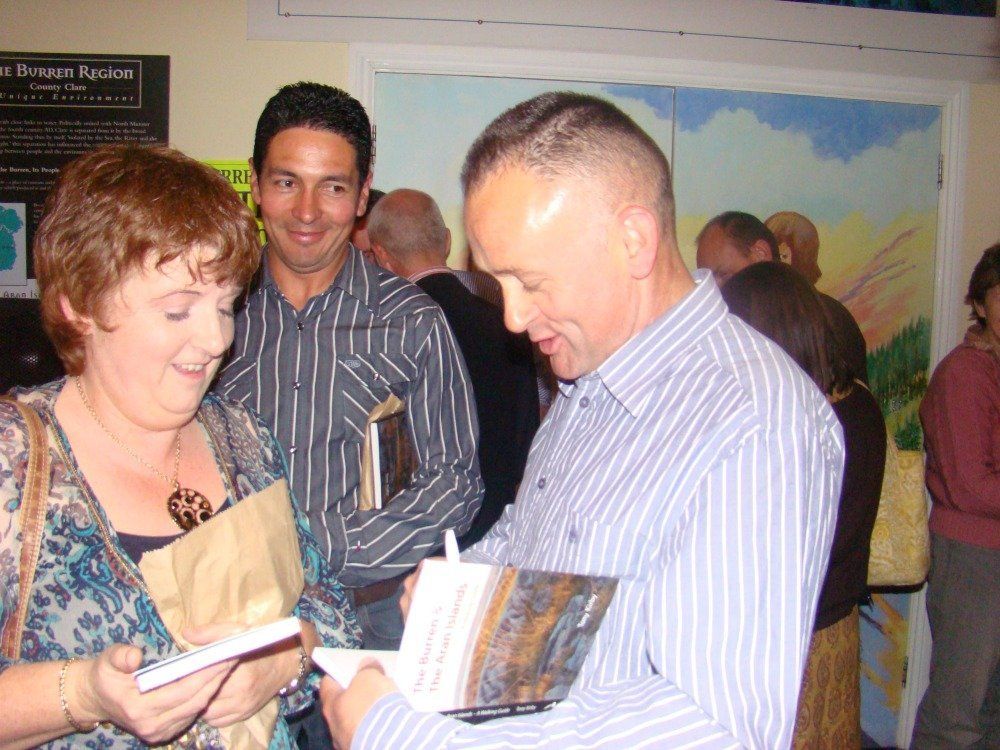
THE BURREN
We came to County Clare for the music but we stayed for lots of other reasons as well. I made a slow, uncertain start to life in the west without my permanent, pensionable job. However, I finally drummed up the confidence to launch a small rural business, Heart of Burren Walks. I became a full-time walking tourism operator. Eimer and I spent a month on the Fanore coast when we arrived in Clare. That was followed by a couple of years in the Burren interior, in the hills near the village of Carran. Home for the last elevenyears has been Kilnaboy. It is situated in the south-east of the Burren. I have the good fortune that the Burren National Park is located in Kilnaboy. It is one of only six National Parks in the Republic of Ireland and is magnificent walking country.
My working year extends largely from April to September. Thankfully May to August are four very busy months. April and September are so called “shoulder months”. A longer working year would be more attractive financially but might drain my energy levels. So I am quite happy with the shorter year as I can give it my very best shot.
The job is quite a privilege. My workplace is outdoors....in the Burren – a region of austere beauty which is exceedingly rich in heritage. Moreover, I meet people from all over the planet – a truly cosmopolitan job even though there is no foreign travel involved. Finally, the most exciting aspect of the work is the journey for knowledge i.e. learning new things. There is every discipline on the Burren hills from archaeology to zoology. It is a library without end, amen. It is pure exciting any time I learn new things about the landscape. The jigsaw will always be very incomplete but the thrill is joining pieces together from time to time. To paraphrase the outstanding contemporary Irish poet Thomas Kinsella – "I read the landscape with what grace I can/Not young, and not renewable, but man." (Paraphrased from the last lines of Kinsella's poem "Mirror in February" - "With slow distaste, I fold my towel with what grace I can / Not young and not renwable, but man").
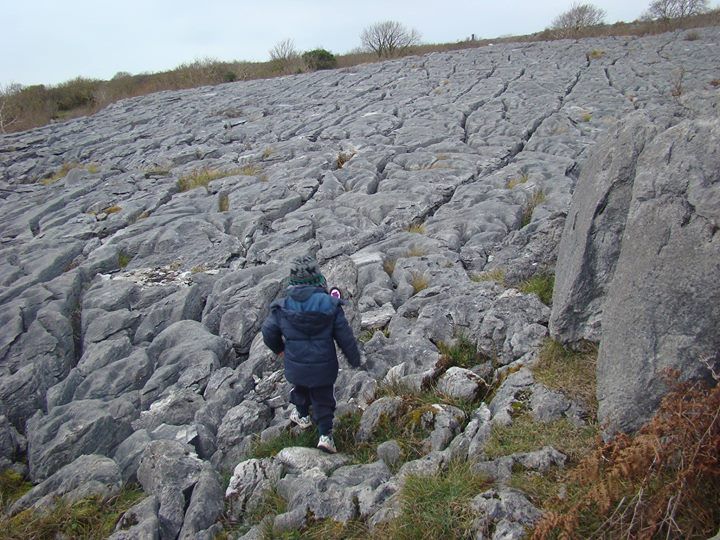
HERE AND NOW
My
main interest in the Burren landscape is holy wells and sacred sites - placess where there is only a thin veil between world and other world.
I have written one book “The Burren and the Aran
Islands A Walking Guide” (Collins Press ; 2009). A revised edition issued in 2014.
Eimer and I have two sons now. They are Seanán Thokozani (7 years) and Oisín Alfonso (3 years). Eimer lived in Malawi for three years. Thokozani means “we thank you” in Chichewa, one of Malawi’s two official languages. Oisín’s second name is Alfonso - as a form of homage to his grand dad, the charismatic insurance salesman he never met.
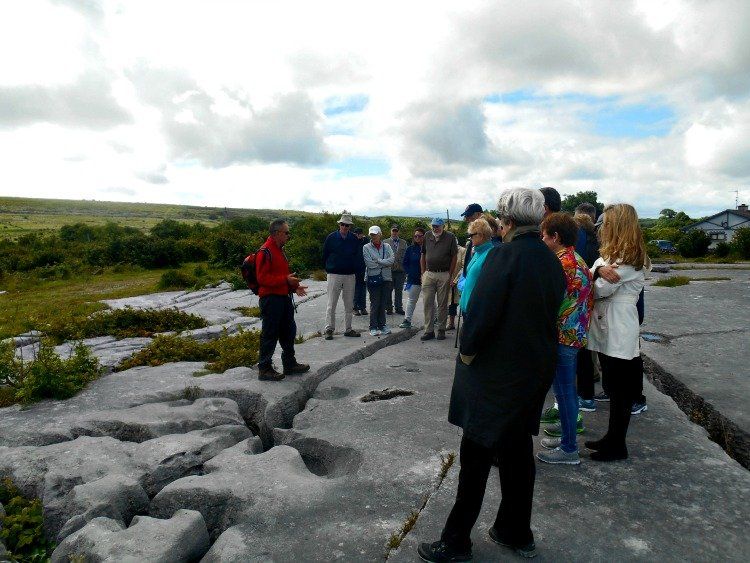
FOOTNOTES
1) Bologna is the capital of the Emilia-Romagna region in the north of Italy. Matera is in the Basilicata region in the south of the country
2) Italy has 50 UNESCO World Heritage Sites – more than any other country in the world. There are two sites in the Republic of Ireland – Sceilig Mhichíl (Skellig Michael), County Kerry and Brú Na Bóinne (archaeological ensemble on the river Boyne), County Meath
3) Cicerone – a person who conducts and informs sightseers ; a tour guide. Origin – after Cicero alluding to his eloquence and erudition.
4) Apart from the Burren, the Republic of Ireland has five other National Parks - Connemara, Wicklow, Glenveagh (Donegal), Killarney and Ballycroy (Mayo).
5) Thomas Kinsella, poet, was born in 1928. “The integrity of his remarkable career is confirmed in the two sides of his work, the translations from the Irish language and the significant and singular achievement of his own poetry.” Maurice Harmon, Professor Emeritus, Anglo-Irish Literature, U.C.D. The Collected Poems 1956-1994 by Thomas Kinsella is published in the series Oxford Poets.
6) Malawi is a land-locked country in the south of the continent of Africa. It is known as “The Warm Heart of Africa”.



